Lord Tweedsmuir Secondary 24-25
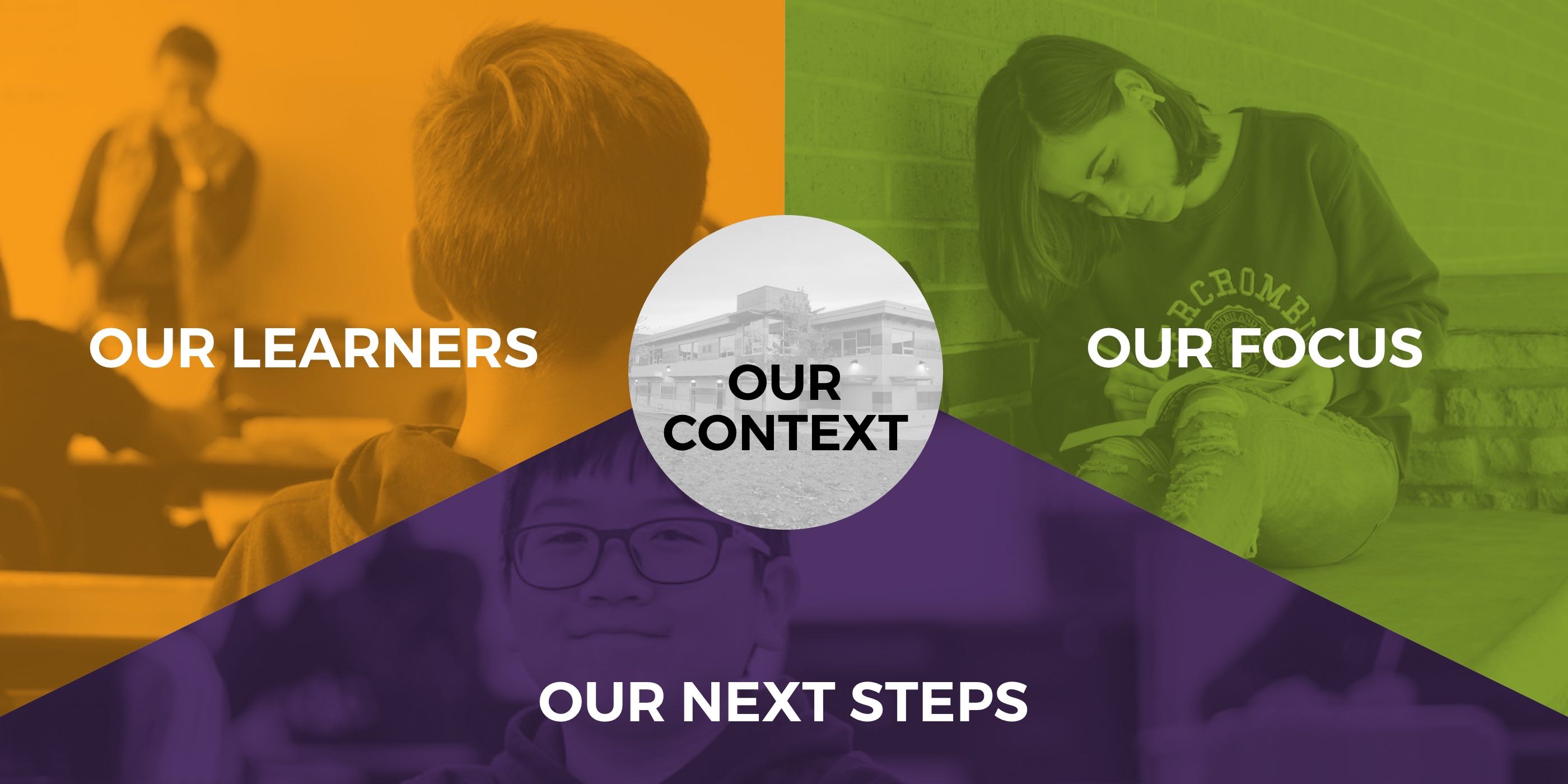

OUR CONTEXT
Lord Tweedsmuir Secondary is located in the Cloverdale/Clayton area, on the shared, unceded traditional territories of the Kwantlen, Katzie and Semiahmoo First Nations. Our school is one of the largest in the district, with a population of approximately 1880 students and 150 staff. A third of our families speak a language other than English at home which reflects the diversity of the community we serve.
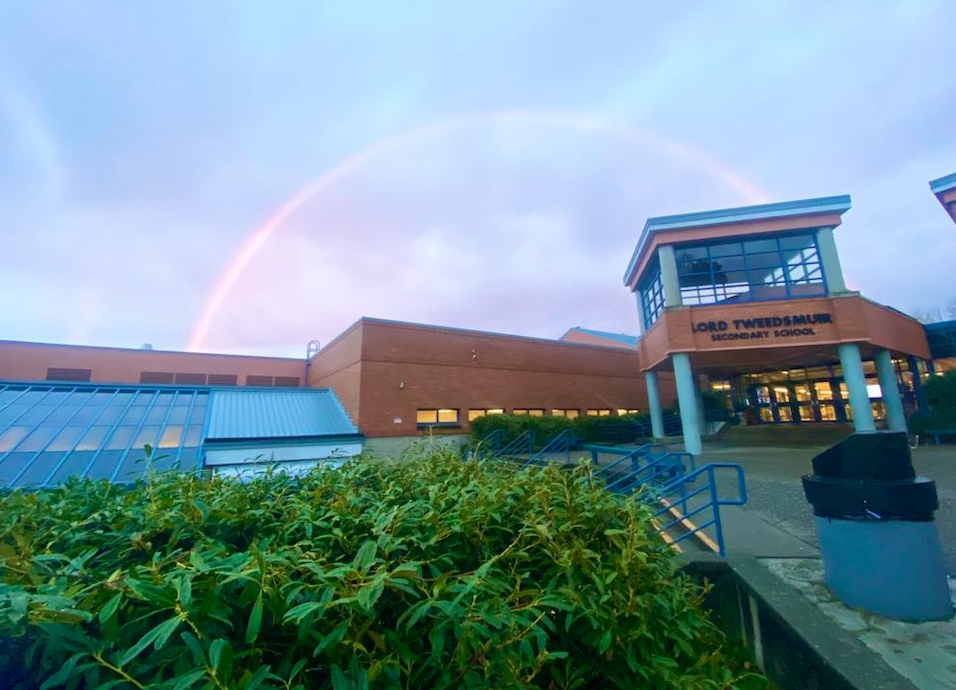
We want our learners to have the fullest school experience possible and provide a wide range of both curricular and extracurricular offerings, including an extensive Athletics program, professional teaching kitchen and Culinary Arts program, district Connections program, district Automotive Service Technician Program, Youth Explore Trades Skills program, Fine and Performing Arts program, as well as other clubs and activities such as Student Council, GSA (Gay Straight Alliance), Student Library Council, Mindfulness Club, Ad Astra Club, Mathematics Homework Help Club, and many more. Our students are proud to represent Lord Tweedsmuir Secondary at our various academic, athletic, performative and cultural events.
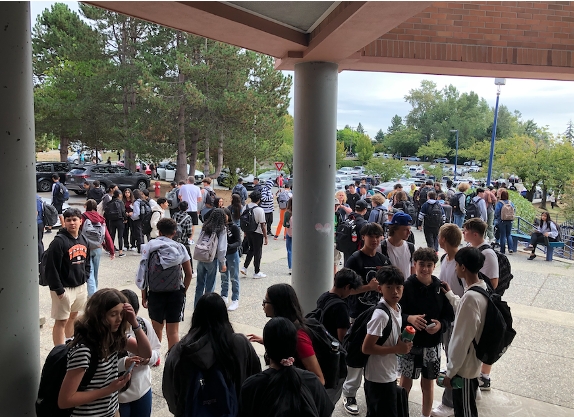
Lord Tweedsmuir Secondary school has an amazing sense of community with students of diverse backgrounds, abilities and interests. "Panther Pride" is highly valued! Our students and staff are engaged in their learning and demonstrate excellence in all forms of learning every day. We celebrate the diversity of our school community and work together to create a friendly and inclusive environment grounded in caring and respect.
Student 1:
“The vast diversity of programs available and the general positivity of the school environment are two noticeable strengths. This is because the school gives plenty of freedom and opportunities for students to do whatever they wish and explore their interests freely. Due to such an open environment, Lord Tweedsmuir feels like a place of comfort for many (myself included) which encourages a generally positive mood throughout the school.”
Student 2:
“We are very diverse. There is always a place for someone to feel at home whether that be with their friends, teachers, club members, or sports teams.”
Student 3:
“Demonstrates a strong commitment to fostering a caring environment through various support systems like LST and after-school programs like a variety of homework clubs.”
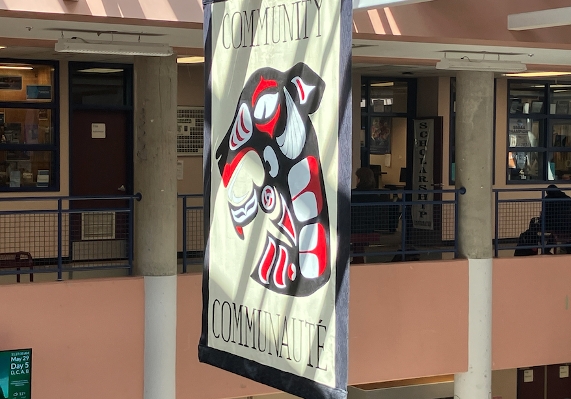
Lord Tweedsmuir Secondary is conveniently situated near several community hubs, including the Cloverdale Fairgrounds (which hosts the Cloverdale Rodeo each year), Cloverdale Recreation Centre and Arena, Cloverdale Youth Park (including skate park) and the Museum of Surrey, and is accessible by public transit.
OUR LEARNERS
The First Peoples Principles of Learning support the success of our students across all curricular and extra-curricular areas of our school. These principles are embedded in all subject areas in BC's curriculum. This year, our staff and students are focussed on two First Peoples Principles of Learning. We celebrate our learners' successes and strengths through the implementation of the following principles:
- Learning is embedded in memory, history, and story
- Learning requires exploration of one’s identity.
Learning is embedded in memory, history, and story
The exploration of history through storytelling helps our Learners understand the perspectives of and empathize with others, including those from diverse backgrounds, cultures and contexts.
Students understand they are a part of a larger system/community yet their individual impact and place within it is valued and significant. Students in our Grade 8 cohort recognize that their history influences who they are and the impact they have on peers, teachers and the broader community. Our learners value the potential to have a lasting, positive impact on those around them and believe that this is primary in both their learning and development as members of a community.
Learning requires exploration of one’s identity.
Our Grade 8 cohort reaffirmed and celebrated our student diversity with their ‘Character Mapping’ project. Students reflected on their own identities and discussed the importance of maintaining healthy and supportive relationships. Students created their own ‘map’ designs that represented themselves and impressed us with their insight and self-reflection.
Students in Grade 8 also explored their own family history in sport to learn more about their own identities.
Students were asked to talk to their family (parents, grandparents) about sports/activities they enjoyed when they were growing up. Did they share the same interest in these activities? How did their experiences with sports and activities influence their identity?
Student #1:
“One of my father’s fondest memories of his involvement in sport was travelling to Ontario for the PeeWee National Lacrosse Championship and winning the cup with the University of Guelph. He learned to appreciate team work, dedication and the importance of hard work and purpose in sport and life. Sport helped him develop respect for others, built a sense of community, and highlighted the value of working together!”
Student #2:
“My mother’s best memories of her youth are about practicing boxing and meeting other athletes. Boxing had a great influence on her life as it taught her to be more disciplined. It taught her to persevere in life, and above all, it taught her self-defense. I am also interested in boxing. It has improved both my physical and mental health.
This year LTSS continued with our Staff Anti-Racism Book Club and a Student Anti-Racism Alliance. Both groups explored, learned and promoted Anti-Racism professional development and awareness in the school through numerous events. Their efforts help to create an inclusive, equitable and welcoming school culture for our students. The celebration of diversity and the pro-social and emotional benefits to our entire school community are powerful supports for the success of our students.
Our student-led Anti-Racism Alliance and various Cultural Clubs organized numerous cultural celebrations throughout the year to celebrate identity and diversity.
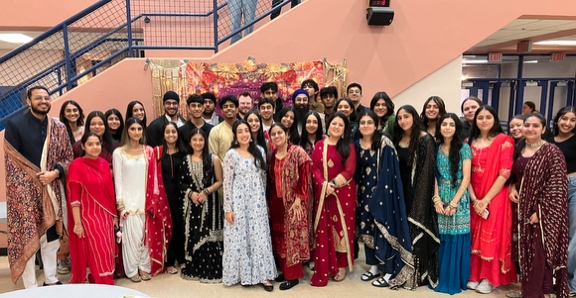
Celebrating Diwali at Lord Tweedsmuir Secondary!
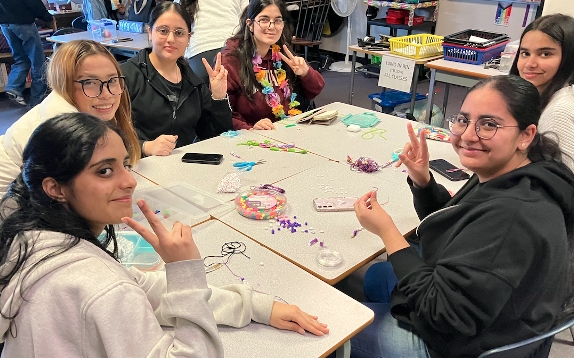
Our students held a Bracelet Making workshop to celebrate Holi!
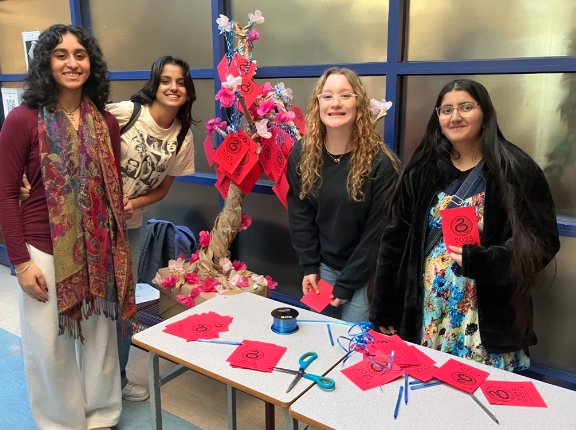
Happy Lunar New Year at LTSS!
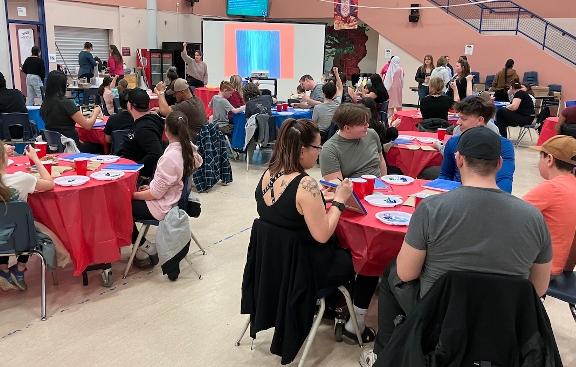
We hosted our annual Indigenous Family Gathering with an Indigenous Painting workshop for our Family of Schools.
OUR FOCUS
Every day our learners are presented with opportunities to learn and grow through the implementation of First Peoples Principles of Learning. We have focused on the use of two Principles of Learning within a cohort of learners. This cohort includes a diverse range of learners that are representative of our school’s population and across all subject areas.
It is demonstrated, through evidence collected from our cohort of students and reflected through the larger group, that our focus on implementation of First Peoples Principles of Learning to support memory, history and story-telling and through the exploration of identity is positively impacting learners.
Language from the provincial assessment scales was used to identify successes and remaining challenges. There was a noted improvement for all students identified in the sample cohort in relation to the learning goals.
Specifically, the following principles: 1) Learning is embedded in memory, history, and story, and 2) Learning requires exploration of one’s identity, directly supports the following Curricular Competencies and learning goals in the Humanities 8 curriculum.
Our students recognized personal, social and cultural contexts, values and perspectives in text.
Our students constructed meaningful personal connections between self, text and the world.
Below are examples of our students’ classroom experiences related to this curriculum using these principles.
Learning is embedded in memory, history, and story.
Lord Tweedsmuir Secondary students have had the opportunity to learn from and develop their story-telling abilities across numerous curricular activities. Students in the cohort participated in a “Hidden Ancestors” project. Students researched their ancestors and learned the stories of their lives. Students reflected on how their ancestors’ experiences have shaped their own lives.
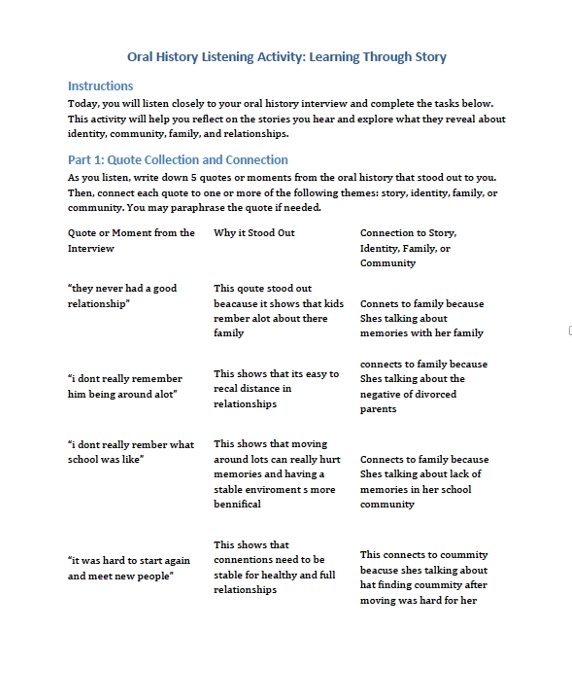
Learning requires exploration of one’s identity.
Students in the cohort have also explored various aspects of their own identity. They participated in a ‘Character Map’ project. Students created their own unique ‘map’ representing their ‘true’ selves. The maps were a visual representation of their differing character traits. Students then wrote a descriptive summary of their identities and how their maps represented themselves in the world.
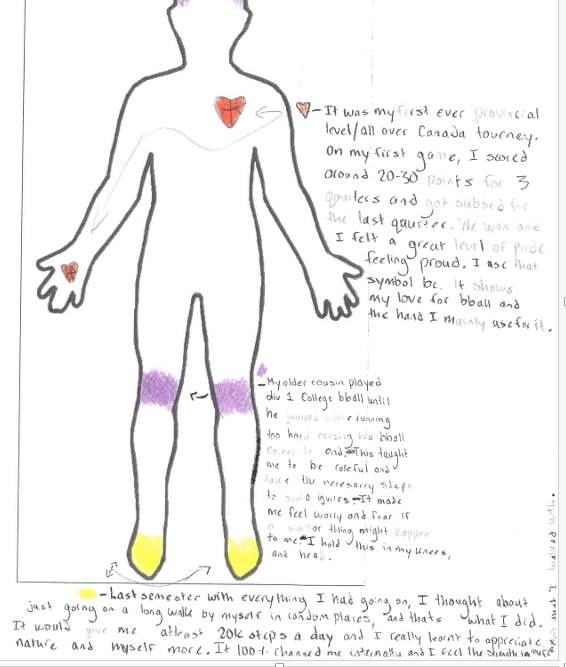
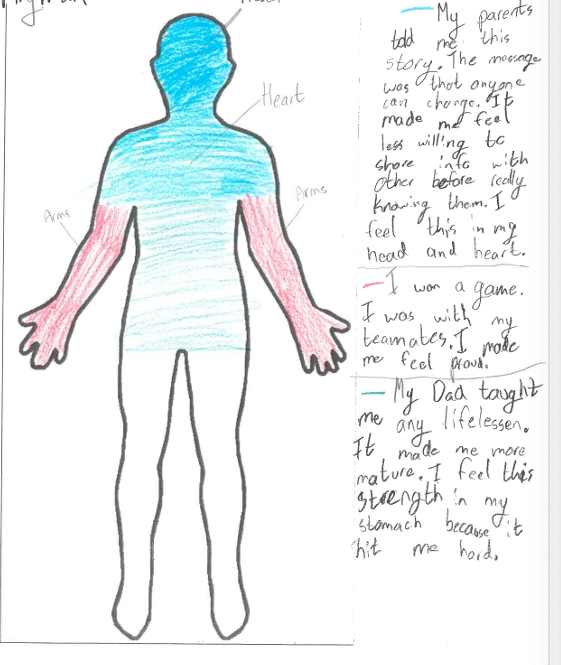
School-wide community building activities included numerous special events during the 24/25 school year that helped to build community and celebrate our students’ identities.
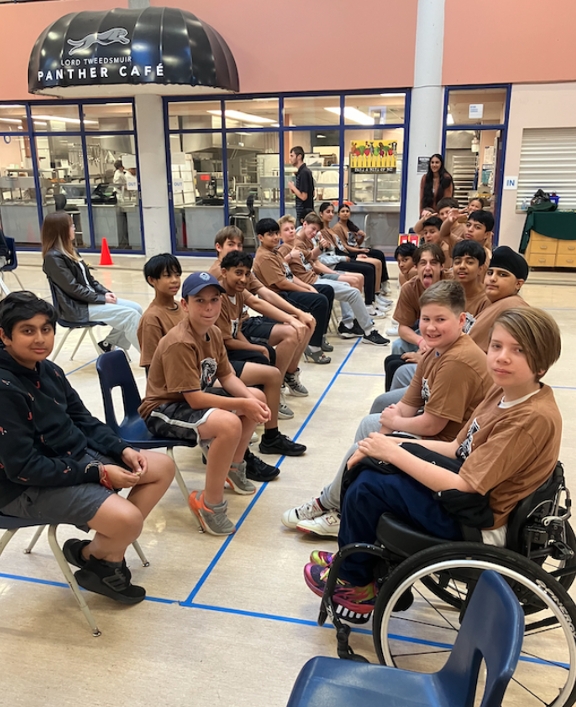
Our Grade 8 Retreat brought our newest Panthers together for orientation and school spirit in the Fall.
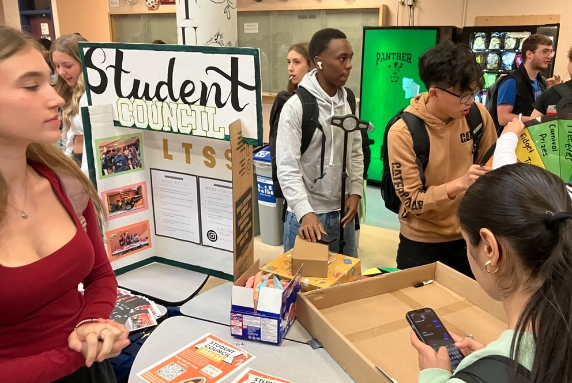
Our Extra-curricular Clubs Fair brought our students together through many amazing activities!

Our Football teams played their Championship games at BC Place! The team is family… and made “memories of a lifetime”.
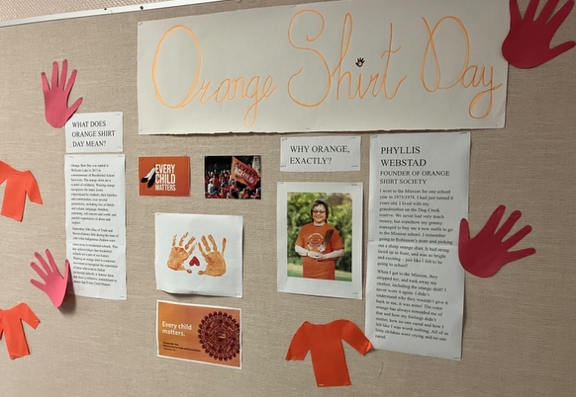
Orange Shirt Day was recognized throughout all curricular areas and across our school community.
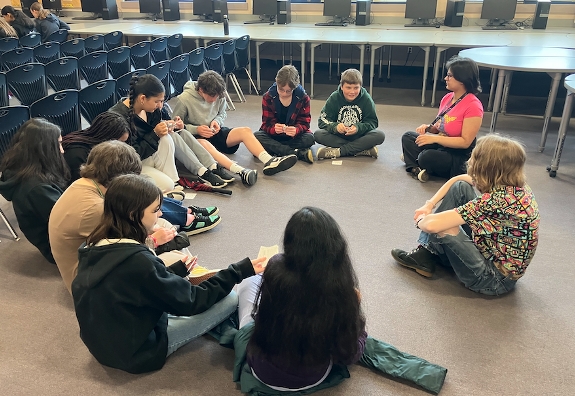
Another very positive community-building initiative that makes connections with our incoming Grade 8 students and our Senior Leadership students was this year’s Grade 7 Tour/orientation visits. All of our Associate school’s grade 7 students spent a morning at LTSS learning about our school with our Leadership students as hosts and tour guides.
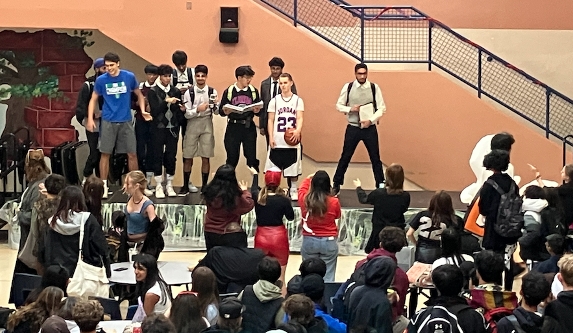
Numerous Spirit Weeks were hosted by our Student Council. Our Halloween costume parade was a big hit!
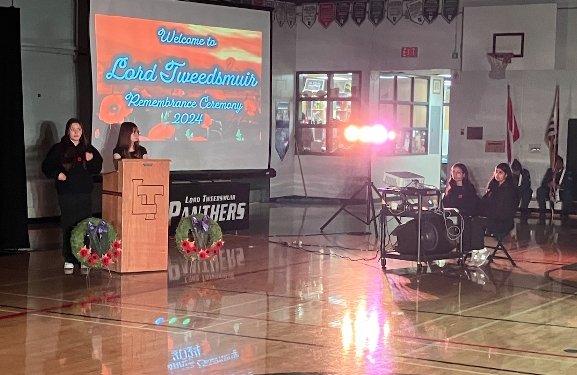
Lord Tweedsmuir Secondary’s Remembrance Day Ceremonies was a powerful and poignant reminder of the sacrifices of our Armed Forces. Our students, staff and guests came together in community to reflect, remember and pay their respect.
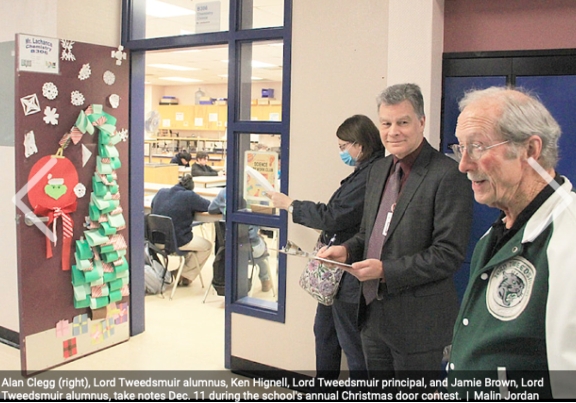
We held our annual Christmas Door Decorating contest. The LTSS Alumni Association was invited to help judge the creativity and spirit of our students.
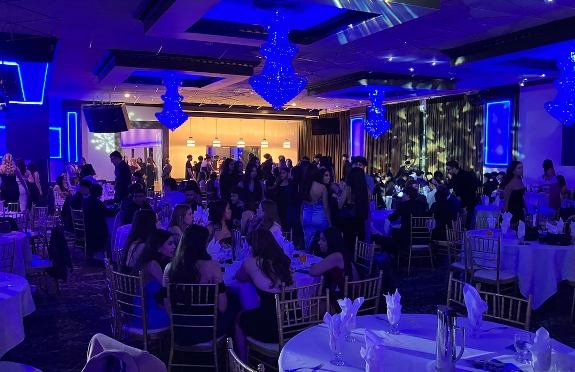
This year’s Winter Grad Formal Dance brought our graduating students together in celebration and friendship.
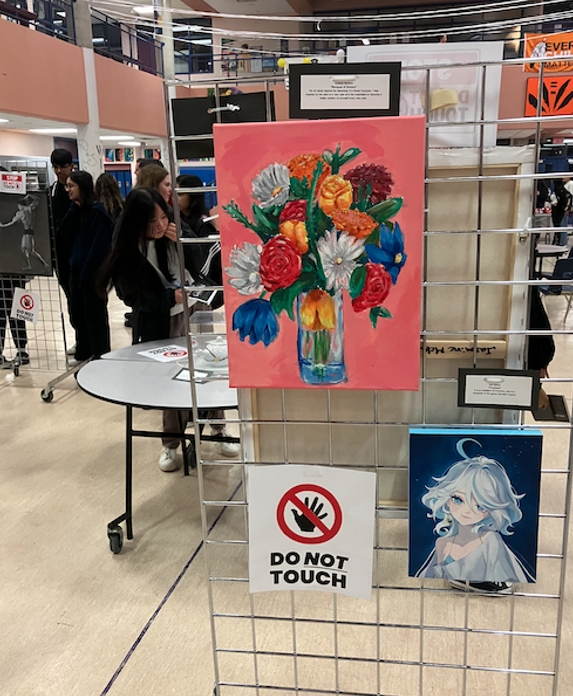
We again hosted our LTSS Fine and Performing Arts Night. Students’ works of Art and Dramatic performances were on display to a very appreciative audience of friends and family.
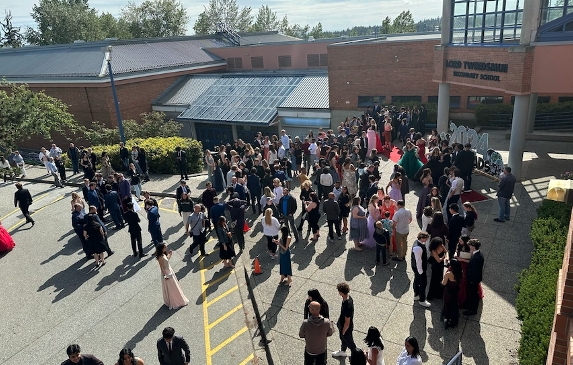
We will continue our new tradition with our Graduates’ Family “Red Carpet” celebration mix and mingle!
OUR NEXT STEPS
Our learners are developing their skills and knowledge through the use and practice of First Peoples Principles of Learning.
Students were able to demonstrate greater levels of proficiency in constructing meaningful personal connections between self, text and the world through the use of story-telling and exploration of memory and history.
Students in the cohort completed a journalism writing task called "Hidden Ancestors." After classroom discussion about identity, students considered people in their family who make a significant impact in their lives. Students then interviewed a family member, and the interviews often focused on obstacles these family members faced on their journeys. The assignment directly supported the ". . .story-telling and exploration of memory and history" element of the Curricular Competency.
Upon completion of the “Hidden Ancestors” project, students’ understanding of this Curricular Competency was significantly deeper.
Students in the cohort also focussed on learning to recognize personal, social and cultural contexts, values and perspectives in text through the exploration of their own identity. This learning was also supported through their ‘Character Map’ project.
Students’ initial articulation of their identities prior to the project was often limited. Upon completion of the project, through discussion, reflection, art and writing, students in the cohort were able to reflect at a much deeper and more meaningful level and articulate their identity, and factors influencing their identity, through their expressive work.
Student Assessment:
The growth of student learning was measured in two ways.
1) Our Grade 8 students responded to an "Identity" survey prior to the instructional unit and after completion of the unit. Students were asked to describe their beliefs about the formation of their identity.
Results:
Pre-survey responses:


Post-survey responses:


Analysis:
As noted above in the graph, the students progressed in recognizing personal, social and cultural contexts, values and perspectives in text through the exploration of their own identity. There was a 5% increase in the number of students “Strongly Agreeing” with factors that influence their identity, and with this, developing a deeper understanding of themselves..
2) Grade 8 students were also asked to interview a family member about their lives and reflect on factors that impact their own identity. Students' understanding of the factors influencing their identity was demonstrated and assessed through their written reflections.
Results:
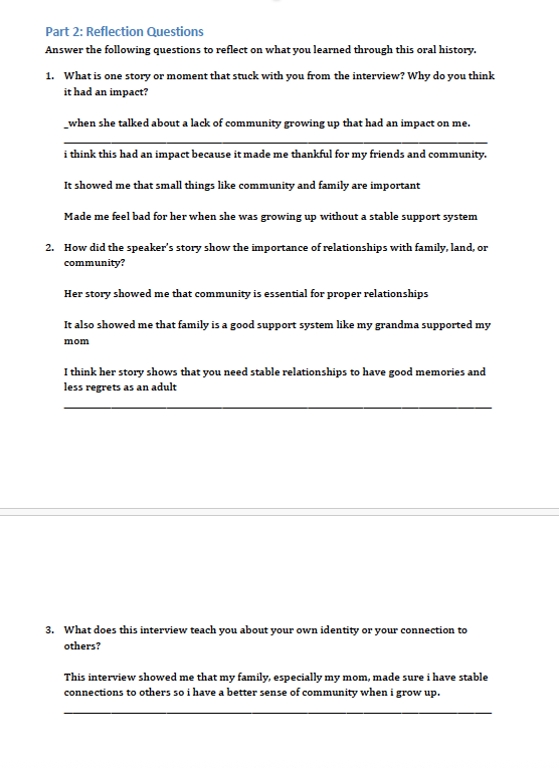
Student 1:
“LEARNING SUPPORTS THE WELL-BEING OF THE SELF, FAMILY, COMMUNITY, LAND, SPIRITS AND ANCESTORS”
My interview with my dad shows evidence of learning supports Family, land, community, and ancestors. There are a few quotes and moments in my oral history that prove this, such as the fact of my dad leaving behind all his connections, land, and the roots where he and my ancestors were raised. This moment from the interview stands out to me because it is the one event that made him lose his family, land, community at the time. Essentially, it is the end of his old life, and the beginning of his new life. And lastly, at the time I believed that if i were to ever move away in a similar way and leave people and things behind it would be easy. Then after the interview with my father, I began to grasp how difficult life became temporarily for him without the pieces in his life that made him his identity. But I also learnt that you can always make new connections, new friends, settle in a new land, and start your own beginning.
2. “LEARNING INVOLVES STORYTELLING”
My interview with my father shows that knowledge can be obtained from not just books, but also oral storytelling. A moment in my oral history interview that stood out to me especially was, “Compared to the rich and the poor in India, the middle class is the one that can't survive there.” The quote means, the rich and even the poor are given more opportunities compared to the lack of chances for the middle class in India. This is evidence of how education and learning can and is passed down through storytelling. I was not aware of this crucial fact about India, and it completely changes my opinion on immigrants and refugees coming here. This quote also allowed me to further understand parts of my father which I did not know before, and our differences. I also learnt from this quote that my father had to come to Canada for opportunities, meanwhile I was lucky enough to be born in a place filled with opportunity and liberation. Before I began the oral history, I thought my father had a calm and easy time coming to Canada and that we may have lived similar lives. But after the oral history interview, I have learnt that, just because I may look like my father, does not mean we went through the same things.
Analysis:
Based upon teacher reflection at the conclusion of the period in which concepts were presented, practiced, and reviewed, 88% of the cohort were able to demonstrate a deeper level of understanding of the factors which have influenced their identity. With 12% of students still requiring support, this will remain an area of ongoing focus and priority.
Moving Forward
Advancing our learners skillsets through memory, history and story as well as through exploration of one’s identity have been very important. Our students have progressed in their understanding of themselves and how this connects to their interactions with their peers, our school, and the surrounding community. In moving forward, we plan on expanding the cohort of students who will focus on these Curricular Competencies and supported by these First Peoples Principles of Learning. As we continue with this work, we will build on it in the following ways.
Learning is embedded in memory, history, and story
- We will increase opportunities for students to learn through story telling.
Learning requires exploration of one’s identity
- We will further develop activities for students to explore their own identity as a foundation for curricular learning and making personal connections between self, text and the world.
